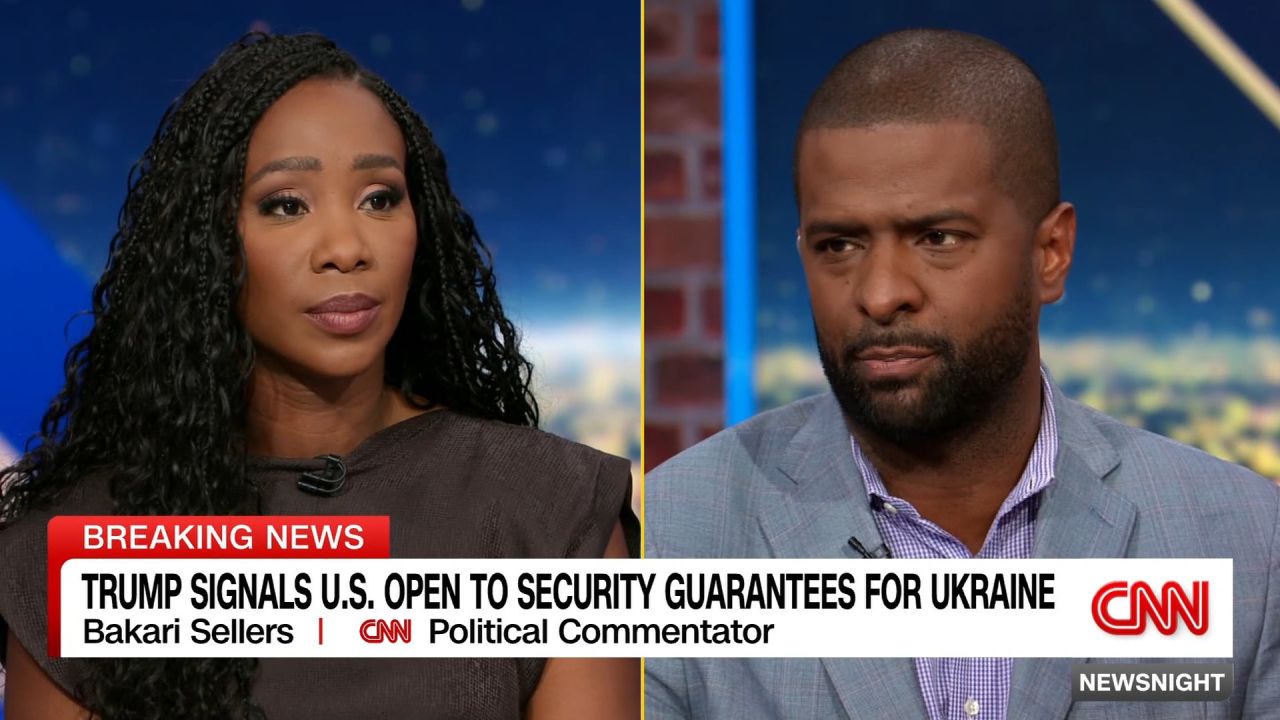During a recent meeting at the White House, President Donald Trump did not dismiss the possibility of deploying U.S. troops to enhance Ukraine’s security. This discussion took place as he hosted Volodymyr Zelensky, the President of Ukraine, alongside several European leaders. The meeting comes at a critical time as Ukraine continues to navigate ongoing tensions with Russia.
Political commentator Bakari Sellers has expressed strong criticism of supporters of Trump’s “Make America Great Again” movement. He highlighted a significant shift in their stance regarding military involvement, pointing out that many who now appear supportive of “boots on the ground” would have opposed such actions just months prior. Sellers emphasized the inconsistency in this viewpoint, particularly in relation to the threats posed by Russian President Vladimir Putin.
The dialogue surrounding military intervention reflects a broader debate within the Republican Party regarding foreign policy and national security. As the conflict in Ukraine evolves, the implications of U.S. military support remain a contentious issue. Sellers’ comments suggest that the party’s base is grappling with the complexities of international alliances and the risks associated with military engagement.
In recent months, the situation in Ukraine has escalated, with multiple countries reassessing their positions. The commitment of U.S. troops to guarantee security could represent a significant policy shift, potentially altering the landscape of international relations in the region.
As Trump navigates this complex terrain, the reactions from both political allies and opponents will be closely scrutinized. The ongoing discourse highlights the evolving nature of political positions in response to global events, particularly in the context of U.S.-Russia relations.
Sellers’ critique calls for clarity from Republican leaders on their stance regarding Trump’s promises and actions toward Putin. He demands transparency on what specific threats Trump has effectively addressed since assuming office. As the debate continues, the implications of military readiness and foreign policy strategy will likely remain at the forefront of political discussions in the coming weeks.
This unfolding narrative not only reflects the current state of U.S. politics but also underscores the intricate relationships that define international diplomacy today.
